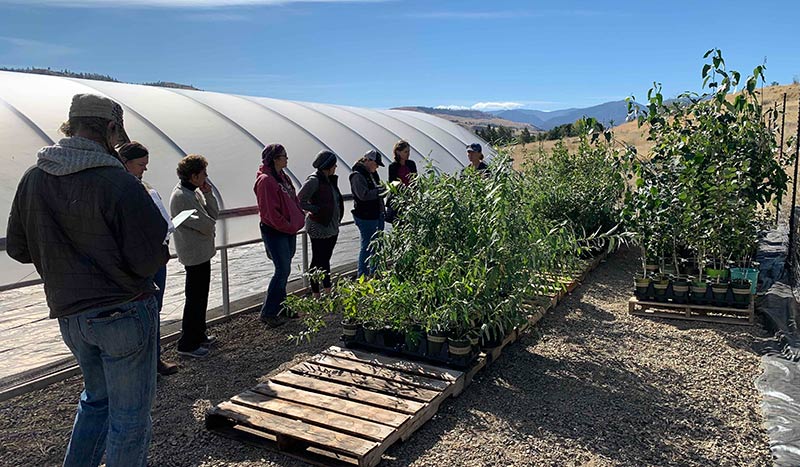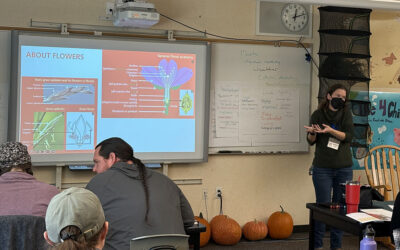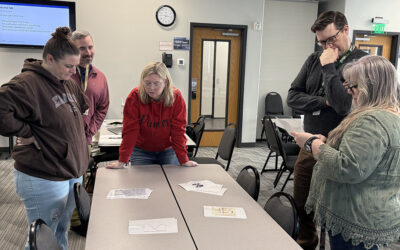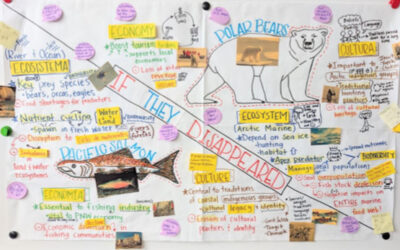NCESD ClimeTime program is hosting a series of Learning with Native Plants workshops to support teachers interested in the possibilities of working with native plants in their schools. The Guidebook to Starting a School Native Plant Nursery was written as an open-source manual that is full of materials for teachers, whether they wish to create a small-scale or micro- nursery, or are interested in the related curriculum resources.
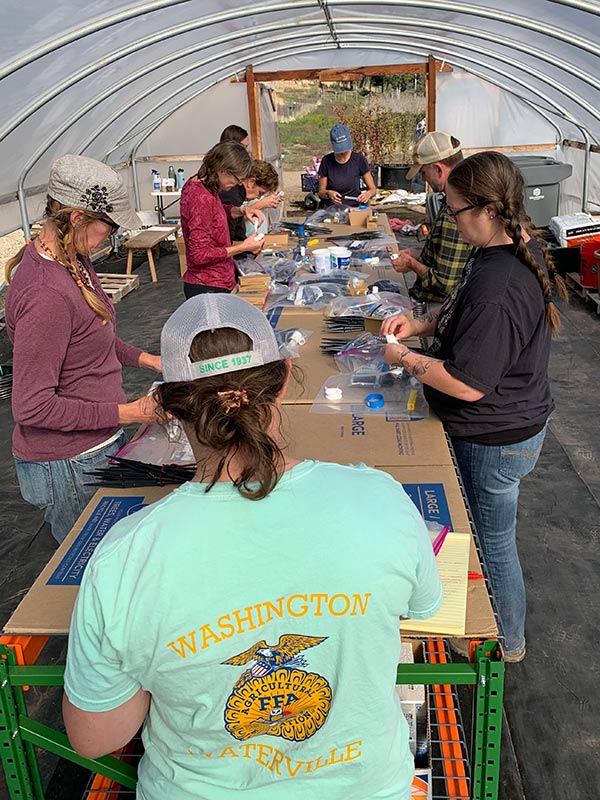
Participants set up irrigation systems for building nurseries back at their own locations.
The guidebook was developed through a Career Connect WA program extension with Western Washington University’s Sustainability Pathways, which is a program based in the Methow Valley and directed by Joshua Porter. The author, Julie Vanderwal, was contracted through her ecological restoration business, Sparrow Song Consulting, and wrote the guidebook based on the program she formerly launched and led at Oroville School District.
The Learning with Native Plants workshops will familiarize teachers with the basics of creating a native plant nursery, as well as engaging in the study of seasonal changes.
Led by Julie Vanderwal, the first workshop in this exciting series launched on a crisp October 1, 2024, when educators gathered at the TwipsWorks Education Center to delve into the Guidebook, swap stories of their experiences with growing plants, and share hopes for their time together in the workshop.
The day began indoors, but as the sun rose on a beautiful fall morning, everyone was eager to get outside. The group made their way to nearby Beaver Food Forest Farm in Carlton, WA, where they explored how native plant nurseries can be created at various scales—whether micro, small, or large—right at their school sites. Educators were introduced to the essential steps for healthy plant propagation, observed irrigation systems in action, and even rolled up their sleeves to build their own systems, setting the foundation for their future nurseries.
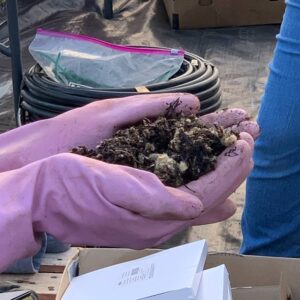
Potting media using a variety of components and excluding peat moss.
A hands-on session on potting media followed, highlighting the importance of moving away from traditional peat moss-based soils to more sustainable alternatives. Educators experimented with a range of materials, learning not only how to create potting mixes but also how this can become a meaningful student investigation into the why, when, and what of different materials.
The day wrapped up with a special planting session. Educators sowed native plant seeds, gathered from a nearby wildlife area and stewarded by the Oroville High School greenhouse program, as part of an effort to continue the genetic lines of the Oroville School Native Seed Bank. These seeds will overwinter at the Farm, and everyone eagerly awaits the first sprouts in the spring.
Looking ahead, two more workshops are scheduled: Learning with Native Plants: Engaging with Seasonal Changes in February 2025, and Learning with Native Plants: Continuing to Grow in April 2025.

